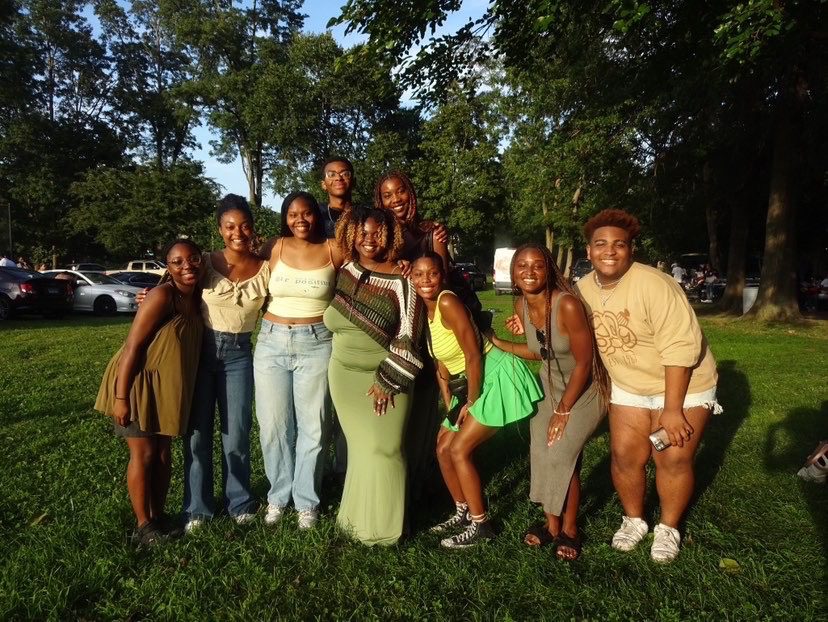“We need this space”: Yalies establish Generational African American Student Association
The new association, called GAASA, aims to create space specifically for African American students descended from people who were enslaved.

Courtesy of Christian Bailey
Over the summer, Christian Bailey ’25 and KaLa Keaton ’25 formed the Generational African American Student Association, Yale’s first organization for African Americans whose families come from a line of enslavement.
Bailey said that the majority of the University’s Black community consists of international and first-generation African students, causing many generational African Americans to feel “unfamiliar” with the Black community at Yale.
At the University, Bailey feels that the events at the Afro-American Cultural Center and Black Student Alliance at Yale “often cater” to Black international culture.
“There wasn’t really a space for [generational] African American students,” Bailey told the News.
Bailey, inspired by a friend studying at Harvard University who told her about the concept of a Generational African American Association, decided to assemble a managing board for a GAASA organization at Yale. Other Ivy League schools such as Harvard University, Princeton University and the University of Pennsylvania have similar organizations, according to Bailey.
Keaton told the News that the GAASA aims to create a new space for generational African American students.
“The whole point is to add an additional space on Yale’s campus [to] accommodate the growing diversity of the Black community,” Keaton said.
Keaton added that other Ivy League GAASAs have offered “major support” in their efforts to establish a GAASA at Yale.
The development of the new group — the only campus organization directed toward generational African American students — has elevated new discussions regarding culture and Blackness, according to Bailey, who said that people tend to “conflate” Blackness with the generational African American experience.
Bailey, who has spoken to GAASA leaders from other Ivy League institutions, told the News that GAASA organizations at these schools have received backlash from within the Black community for being divisive and exclusive in their purpose.
Despite concerns of tension within the Black community at Yale, Bailey said that people have been “so receptive and so helpful,” with leaders of the Black Students Alliance at Yale — a campus racial advocacy group that organizes around issues facing Black Yale affiliates — lending support to the board throughout their planning process.
The goal of the group is not to separate generational African Americans from the Black diaspora, Keaton said, but rather to educate the Yale student body on the generational African American experience, while acknowledging that it is “challenging” for generational African American students to navigate Black cultural spaces.
While generational African American face unique challenges, Keaton added that they still share common experiences with the larger Black community.
“The way that you are perceived when you are unambiguously Black is a universal experience, regardless of your ethnicity,” Keaton said.
For first-year students, GAASA serves as an opportunity for those who are generational African American to come together in a common space, exchange ideas and relate through culture and experience. First-year liaison for GAASA Miles Kirkpatrick ’27 said that it can be a significant transition to move from a generational African American space to Yale’s potentially “unfamiliar” Black community.
Following the Supreme Court’s decision to overturn race-conscious university admissions, GAASA internal community projects chair Vyann Eteme ’25 told the News that there has been a “push” to keep generational African Americans out of institutions of prestige and power.
Eteme said she believes that GAASA will facilitate dialogue that questions “who is being admitted and excluded from institutions like Yale.”
GAASA is not eligible to receive University funding until at least after November, when the Office of Student Affairs opens funding applications for the academic year, per Bailey and Keaton. Despite this, Keaton said that the “sky is the limit” for this semester.
In the coming months, Keaton said the group hopes to form relationships with GAASA organizations at other Ivy League schools. In November, the GAASA board plans to collaborate with Harvard’s GAASA and host events during the week of the Yale-Harvard game.
Keaton added that the GAASA board intends to launch more intensive event planning going into next year if successful in their application for official funding.
GAASA leaders started planning the group’s formation in June.







